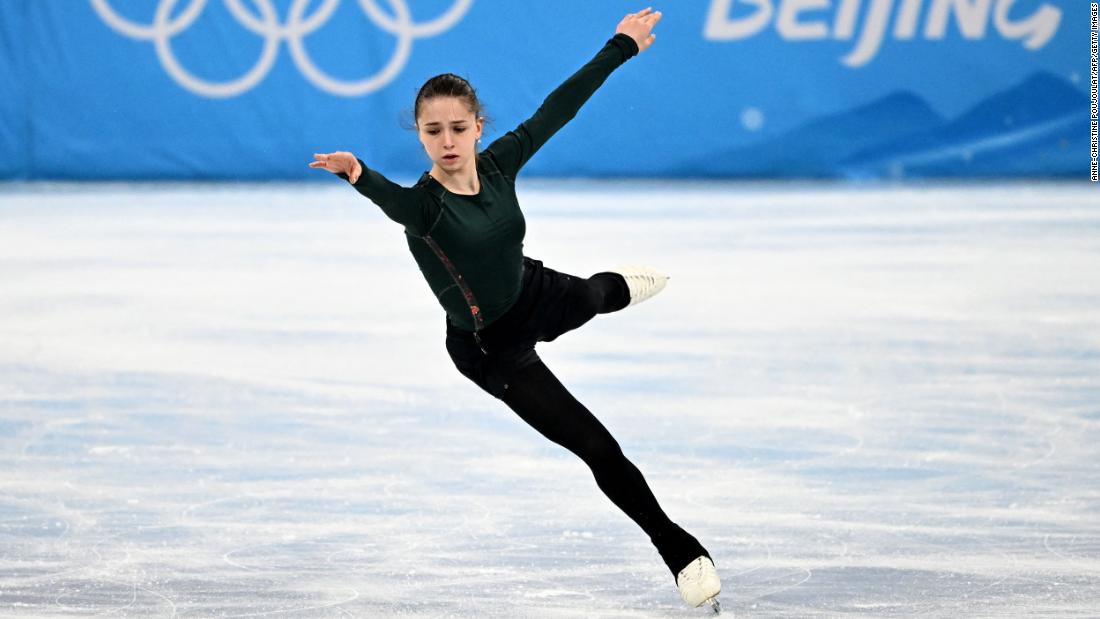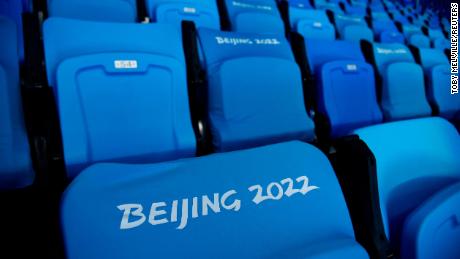It came after the Russian Anti-Doping Agency (RUSADA) lifted a provisional suspension on the skater, according to a statement issued by the ITA Friday.
The statement said the International Olympic Committee (IOC) is now appealing the RUSADA’s decision, citing a need to resolve the matter before Valieva’s next event on February 15.
Russian newspaper RBC Sport reported Wednesday that one of the ROC’s six team members failed a drug test in December.
The failed test only came to light during the Winter Olympics — sparking a scandal that continues to delay the medal ceremony of the team event. Team USA won silver while Team Japan took bronze.
Valieva is the favorite to take gold in the women’s figure skating event — probably the most celebrated event at the Winter Olympics.
It is unclear whether Valieva will be allowed to compete, though she has been seen practicing on the ice this week.
CNN has reached out to the ROC for comment but has not received a response.
Why was Valieva allowed to compete?
The ITA, which leads the anti-doping program for the Beijing Winter Olympics, said the drug sample was taken at the Russian Figure Skating Championships in Saint Petersburg on December 25.
However, it took until February 8 for a laboratory in Sweden to report that it had detected a banned substance — one day after the ROC won gold at the team event in Beijing.
Hormone and metabolic modulators are a class of drugs banned by WADA due to evidence of athletes using them for performance enhancement, as they can increase blood flow and improve endurance.
Valieva was immediately given a provisional suspension by Russia’s anti-doping agency, which automatically prohibits athletes from participation in all sports.
The figure skater challenged the suspension on February 9 and, at a hearing that same day, the Russian anti-doping agency decided to lift the provisional ban — allowing her to continue competing at the Olympics, according to the ITA statement.
The ITA added that since the sample was collected by the Russian agency ahead of the Games, the case was not within the jurisdiction of the International Olympic Committee (IOC) and not managed by the ITA.
The IOC has the right to appeal the decision to lift her suspension and is taking the case to the Court of Arbitration for Sport (CAS), with a decision needed by Tuesday, ahead of the Russian figure skating star’s next event.
Though the ROC team won gold in the previous event, it remains unclear if the drug test controversy could see the medal revoked.
“The decision on the results of the ROC team in the Team Figure Skating event can be taken…only after a final decision on the full merits of the case has been taken,” the ITA statement said.
The fact that Valieva is a minor means that she is a “Protected Person” under the World Anti-Doping Code, which means her name does not need to be disclosed to the public.
The ITA said it has released her name following media reports naming her based on “unofficial information” and the ITA “acknowledges the necessity for official information due to heightened public interest.”
Official response has been muted
Russian athletes are unable to compete in the Olympics under their country’s name due to sanctions from the IOC and WADA as a result of the country’s “systemic manipulation” of anti-doping rules during the 2014 Sochi Games.
Kremlin spokesman Dmitry Peskov would not confirm reports of a positive test among the Russian figure skating team on Thursday, saying: “The only primary source of information should be the IOC.”
“It (the reports) flared up among those who did not have verified information,” said Peskov. “As usual, not knowing the details, everyone began to yell far and wide. We will not join this orderly row of yellers.”
Speaking to journalists Friday, IOC Spokesperson Mark Adams said the governing body wanted to “expedite” the case.
“We hope that the whole issue can be expedited in the interest of every athlete, not just the Russians, but also in the interest of all of the athletes competing,” Adams said.
CNN’s Rebecca Wright, Christine Brennan and Nathan Hodge contributed reporting.







More News
Opinion | What Kind of Country Do You Want? Start With Taxes.
PTSD Has Surged Among College Students
Why Are People So Down About the Economy? Theories Abound.